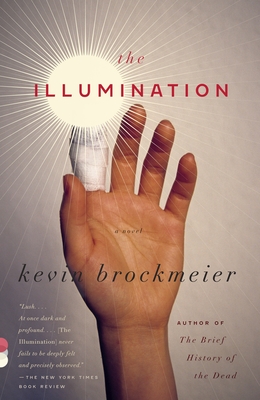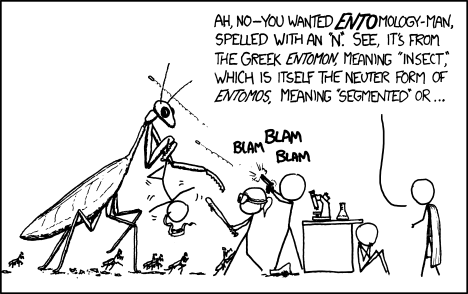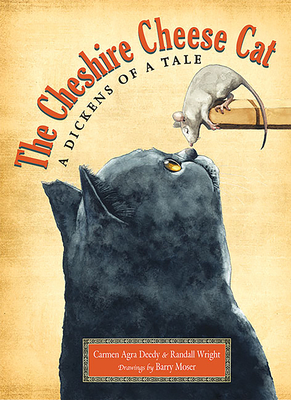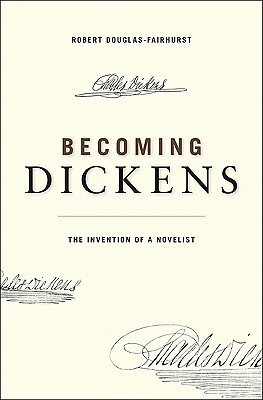I wanted to love Running the Books. Maybe this wasn't a good time for me, or maybe I tackled too much non-fiction in a row, but after working my way through only 266 pages of this 399-page memoir in a little over two months, I decided to call it quits. That, and I was out of renewals on it at the library.
Here's the thing, though: Avi Steinberg's accounts of his experience as a prison librarian (he dubs himself an "accidental" prison librarian) are really very captivating. And I really liked them. I just didn't really want to read 400 pages of them. I like long books, really, I do, but this one just didn't work out for me.
Despite my luke-warm feelings for the book as a whole, there were a few key lines I thought worth sharing. This is, after all, a book about the power of books (or at least the power of a collection of books), and the bookworm in me absolutely loved that:
On a pimp's encounter with the prison library: "When you do, you'll find the sweetness and the light. You'll find books you've always needed, but never knew existed. Books like that indispensable hustler's tool, the rhyming dictionary. You'll discover and embrace, like long-lost relatives, entire new vocabularies." (4)
On the definition of "correction" in "correctional facility: "On the back on one of his legal briefs, he scribbled: I like to right. Then he crossed it out, and rewrote it: I like to write. 'That's a correction,' he said, 'This here is a damn prison.'" (98)
On trying to find the perfect book for a prisoner: "Some books were close calls, but the one she sought remained elusive. Sometimes I wondered if maybe this book hadn't been written. I suggested to her that she write it--some people wrote, I said, because the book they'd most love to read, that they need to read, simply hadn't yet been written." (182)
On the temptations of censorship, and not so much: "Perhaps as a prison librarian, who served a vulnerable population, I had a responsibility not only to connect people to books but also to protect them from some as well. The idea bothered me: Who was I to decided what books another person should read? Censorship was not my job...I had women in my library who were borderline cases, cutters, suicide junkies, who might turn to Plath as an oracle of self-annihilation. Maybe I had a responsibility to shield them from [Ariel]. Or perhaps reading the poem could help in some way. Maybe I should teach the poem. Or maybe it wasn't my business, either way. None of this was obvious to me."
Steinberg's account of the inefficiencies of the prison system, the hierarchies and politics and bullying nature of it all, is at times engrossing. And his passion for what he does is enticing. If only the book could have been shorter. Or faster-paced. Or perhaps both. Or maybe it's just me. The stories I did read will certainly linger with me for some time--they're already doing that--I just wasn't compelled to actually read any further.
---
Thoughts from other readers:
What Red Read
Bibliophiliac
Boston Bibliophile
---
Running the Books | Avi Steinberg | Nan A. Talese | 9780385529099 | $26.00 Hardcover | 416 pages | October 2010 | Buy from an independent bookstore near you
Book Lovers + Letter Writing = Bookmark Greeting Cards
27 February 2012
Note: I received a sample of these cards for review
from Robin Blum at In My Book, but opinions expressed here, as always,
are my own. God knows I have enough of my own opinions in store without
starting to publish the opinions of others, too.
There are tons of bookish greeting cards out there--there is a definite overlap between lovers of snail mail and lovers of books, after all. I've raved about my Penguin postcards in the past (I even framed some and hung them in my bedroom), and I've long been a fan of Out of Print's notecards (as well as everything else Out of Print has ever made, if I'm being honest).
So imagine my delight when I was contacted about In My Book cards, a genius combination of bookmarks and postcards in one. These nifty little cards transform from a lovely vertical card design to a bookmark with one simple tear (the folded edge of the cards are perforated for easy separation). As an added bonus, they are printed on luscious, durable card stock: fun to write on (if you're a picky pen-to-paper person like yours truly) and durable enough to withstand the test of bookmarkdom.
There are fifteen designs in all (check out inmybook.com to see them all), but here are a few of my favorites:
There are tons of bookish greeting cards out there--there is a definite overlap between lovers of snail mail and lovers of books, after all. I've raved about my Penguin postcards in the past (I even framed some and hung them in my bedroom), and I've long been a fan of Out of Print's notecards (as well as everything else Out of Print has ever made, if I'm being honest).
So imagine my delight when I was contacted about In My Book cards, a genius combination of bookmarks and postcards in one. These nifty little cards transform from a lovely vertical card design to a bookmark with one simple tear (the folded edge of the cards are perforated for easy separation). As an added bonus, they are printed on luscious, durable card stock: fun to write on (if you're a picky pen-to-paper person like yours truly) and durable enough to withstand the test of bookmarkdom.
There are fifteen designs in all (check out inmybook.com to see them all), but here are a few of my favorites:
Cards retail for $3.95 each and can be purchased directly online or at a bookstore near you.
Happy writing!
Nancy Pearl, DNF and Guilt
22 February 2012
For a really, really long time, I did not believe in starting a book and not finishing it. There were a few exceptions, of course:
She's right, of course. How could a librarian with her own action figure be wrong, after all? I started to apply her advice to my own reading; in 2011, I started and put down 9 books* (about 10% of all of my reading). If I didn't love it, I didn't read it. And it felt good. Really good. I've already abandoned one book this year, and I haven't looked back.
But I guess nothing can be that simple, really, because I find I'm struck with another question: what do I do with the books I kind of like, but certainly don't love? The books that are too long and desperately needed two hundreds pages edited out to maintain their momentum, or the titles that are intriguing, sure, but lack that siren song when you are forced to put them down?
Sometimes, I can tell after fifty or one hundred pages that a book will be... fine. Just fine. Not bad, but not great. And these are the books that give me the most guilt, that I have a hard time abandoning. They are the books I probably should abandon, but have not yet found it in me to do so.
Any advice? Do you read on in these situations, or give up the ghost?
---
*The only one that didn't feel good was Laura Lippman's I'd Know You Anywhere, which I really, really wanted to love. And actually, I did; Lippman's writing was spot-on, and her story so well-done and well-conceived as to be totally creepy. So much so that I stopped sleeping well, and had to stop reading after only a few chapters. This particular DNF I consider more a compliment than anything else; apparently, I'm just a weeny.
- That one time that I was halfway through a 400-page book that I was not enjoying and I accidentally left it at the BWI train station. I figured it was my subconscious speaking and let myself off the hook for buying a replacement copy in order to finish it.
- Terribly long, overly detailed non-fiction titles assigned for college courses.
- Terribly long, overly detailed fiction titles assigned for college courses.
- Twilight
She's right, of course. How could a librarian with her own action figure be wrong, after all? I started to apply her advice to my own reading; in 2011, I started and put down 9 books* (about 10% of all of my reading). If I didn't love it, I didn't read it. And it felt good. Really good. I've already abandoned one book this year, and I haven't looked back.
But I guess nothing can be that simple, really, because I find I'm struck with another question: what do I do with the books I kind of like, but certainly don't love? The books that are too long and desperately needed two hundreds pages edited out to maintain their momentum, or the titles that are intriguing, sure, but lack that siren song when you are forced to put them down?
Sometimes, I can tell after fifty or one hundred pages that a book will be... fine. Just fine. Not bad, but not great. And these are the books that give me the most guilt, that I have a hard time abandoning. They are the books I probably should abandon, but have not yet found it in me to do so.
Any advice? Do you read on in these situations, or give up the ghost?
---
*The only one that didn't feel good was Laura Lippman's I'd Know You Anywhere, which I really, really wanted to love. And actually, I did; Lippman's writing was spot-on, and her story so well-done and well-conceived as to be totally creepy. So much so that I stopped sleeping well, and had to stop reading after only a few chapters. This particular DNF I consider more a compliment than anything else; apparently, I'm just a weeny.
Ann Patchett on The Colbert Report: Indies, Book Sales, and Online Recommendation Algorithms
21 February 2012
In which Ann Patchett holds her own with Stephen Colbert on last night's episode of The Colbert Report, talking independent bookstores, book sales, and the problems with online recommendation algorithms ("People who bought this book also bought a socket wrench set!"):
Mon - Thurs 11:30pm / 10:30c
| ||||
| ||||
And my favorite part? When Ann throws down the gauntlet and invites Colbert to her bookstore, Parnassus Books, for a book signing party (with a shout-out to Patterson House, the best cocktail lounge I've ever been to)... then tells him that the next week, he can go to Amazon's warehouse, cut the boxes open, sign his book, and let her know which he liked better.
I visited Parnassus in January with good friend and fellow-booklover Emily, and can't recommend it enough.
P.S. You can buy signed copies of Ann Patchett's books directly from Parnassus Books here, without even traveling to Nashville!
Audiobook Review: Packing for Mars, by Mary Roach
20 February 2012
 There are certain authors who have an uncanny ability to make me interested in a topic in which I had previously had little to no interest. Among these authors are Bill Bryson, Sarah Vowell, and Mary Roach. I will read books by these people regardless of subject, and I have found that (with a few exceptions), I will enjoy books by these authors regardless of subjects.
There are certain authors who have an uncanny ability to make me interested in a topic in which I had previously had little to no interest. Among these authors are Bill Bryson, Sarah Vowell, and Mary Roach. I will read books by these people regardless of subject, and I have found that (with a few exceptions), I will enjoy books by these authors regardless of subjects.Which is why I lined up at BEA (two years ago now!) to meet Mary Roach and get her to sign my ARC of Packing for Mars, despite a previous lack of interest in space travel. Note that I say previous, because after reading Packing for Mars (ok, I didn't actually read my signed ARC, I listened to the audio version from my library), I can now say in all honesty that I am interested in space travel. Really! After all, we're working towards a long-term mission to Mars, people!* We should be into this!
And Mary Roach, I tell you, IS into this. She is as enthusiastic about space travel as she has been in the past about cadavers (Stiff), ghosts (Spook), and sex (Bonk). And, just as she has done in previous works, this enthusiasm means she shies away from no subject, no matter how taboo it might be. This means that Packing for Mars includes all the gory, gutsy details about the following subjects:
- vomit, and how the human body produces it;
- sebum (look it up);
- what happens when you don't bathe for several weeks (see also: sebum);
- psychological tests done on potential astronauts (also known as cosmonauts);
- how one goes to the bathroom in space;
- what it's like to be in zero-gravity;
- what it's like to experience G-forces;
- what happens to one's organs in experiences of zero-gravity and/or extreme G-forces;
- the science of dehydrated food;
- why humans can't just eat dog food while traveling in space;
- why the Americans are always racing the Russians to space;
- and various names for human waste.
- Astronaut
- Cosmonaut
- Space Suit Historian
- Residue Expert
- Motion Sickness Expert
- Microbiologist
- Toilet Researcher
After all, it's hard to take anyone too seriously when they are writing about drinking their own urine (something Mary Roach really did in the name of research***), but the fact is that drinking urine has been considered (and in some instances, is still being considered) as a means of keeping astronauts hydrated for long flights. It is the fact that Roach is able to discuss important but slight stomach-turning subjects like this with a straight face, and the narrator is able to deliver them with a straight face (or at least what sounds like one) that gives readers new understanding of the absurd, and how sometimes, in some instances, the absurd is actually quite reasonable.
As it has done for her in the past, this ability--coupled with sheer enthusiasm for thorough research--has made Packing for Mars another success for Mary Roach. Whether or not you have any existing interest in space travel, rest assured that Mary Roach will entertain and delight with Packing for Mars... as I'm sure she will with any books she writes in the future. Hopefully the near future.
* Or, according to some, a 51st state on the moon. Though if certain politicians were to read about all that goes into space travel, or even just what space travelers have to eat in order to survive, certain politicians might think differently about this plan.
**Remember those things? With the emphatic yet monotonous male voice telling the teacher when to click through to the next slide, and the expressive yet matter-of-fact lady dictating additional information about each slide?
*** Before you freak out too much and insist that urine is not actually drinkable (and you're right, it's not), note that researchers have developed a way to filter and sanitize urine (and other human liquid waste, such as sweat) into a drinkable liquid. While it might not taste good, it is practical. And given the experiments that Roach participated in while researching Bonk, can anyone say they are really surprised that she was willing to do this in the name of space research?
---
Thoughts from other bookworms:
Full Stop
Brews & Books
The Book Lady's Blog
Fizzy Thoughts
---
You might also like:
Bonk, by Mary Roach
Unfamiliar Fishes, by Sarah Vowell
---
Packing for Mars | Mary Roach, nar. Sandra Burr | Brilliance Audio | 9781441876638 | $20.99 Audio CD | 10 hrs, 28 min | August 2010 | Buy from an independent bookstore near you
Making Connections: 1890s New York
15 February 2012
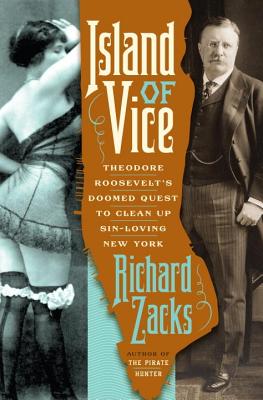 I just finished reading Island of Vice: Theodore Roosevelt's Doomed Quest to Clean Up Sin-Loving New York, and it's fantastic (stay tuned for review). Especially if you have a bit of a crush on histories of New York, which I do. My six years in New York embedded within me a deep respect for the power of that place, of its neverending capacity to change, and yet harbor within it so much history, so many stories, so many lives.
I just finished reading Island of Vice: Theodore Roosevelt's Doomed Quest to Clean Up Sin-Loving New York, and it's fantastic (stay tuned for review). Especially if you have a bit of a crush on histories of New York, which I do. My six years in New York embedded within me a deep respect for the power of that place, of its neverending capacity to change, and yet harbor within it so much history, so many stories, so many lives.One of my greatest pleasures, as a reader and as an ex-Manhattanite, is diving back into the city I think I know so well only to find a previously undiscovered layer. That is precisely what Island of Vice does: peels back what we think we know about 1890s Manhattan, and Theodore Roosevelt's time there, and instead presents what we should have known.
Throughout it, I could not help but draw parallels to that well-loved thriller, The Alienist, which I read early last year and absolutely adored. The two feature many of the same characters (Jacob Riis, Theodore Roosevelt, Big Bill Devery, etc.), but approach the subjects of vice, police corruption, and TR's time as Police Commissioner from very, very different angles. And yet it is impossible not to see the connections. If you haven't read The Alienist, I strongly recommend it (read my full review here); once you're done, dip into Island of Vice (on sale March 13) for a non-fiction approach.
Does anyone else do this as they read? Find connections between stories, histories, whatever the case may be? Any other books on 1890s New York that I should be eyeing for a next read?
Billions of Cards
14 February 2012
I have no actual facts to support this claim, but I have decided that today must be the "Black Friday" of the greeting card industry. You know, the day that they all work up to year-round, and the day that their books move from the red to the black, and then they can just coast through greeting card sales for the rest of the year.
So, Happy Valentine's Day! Anyone doing any themed reading? Sending any awesome cards? Did you see these fun Miss Peregrine's Home for Peculiar Children e-cards (or printable cards) from Quirk Books?
(via someecards, that ever-fabulous snarky card-sending site)
So, Happy Valentine's Day! Anyone doing any themed reading? Sending any awesome cards? Did you see these fun Miss Peregrine's Home for Peculiar Children e-cards (or printable cards) from Quirk Books?
"The Warmth of a Cold Nose"
11 February 2012
No, not that kind of bundle of love.* We brought a dog home this week. It wasn't an accident; in fact, it was rather well-planned. He needed a home, and we needed a new creature to love.** It worked out quite well, all told.
He's curled up in the sunshine on the floor next to me as I write this, all 34 lbs. of him, with two cone-shaped ears sticking straight up. Every now and again he hears something turn over in the dryer -- I think there's a penny in there, or maybe it's a whole quarter, and I can treat myself to a gumball after I fold -- and he'll perk his head up, ears erect, body stiff. But only for a second, and then he relaxes again. He's settling in. We're settling in.
Welcome home, Indiana.*** Good to have you. Please, stay a while. Just stop waking up at 5AM, yes? That's an unholy hour for being awake.
---
* My husband used our decision to adopt a dog as an excellent way to freak out his parents, setting up the "big announcement" with this little gem: "Kerry and I have something to tell you all. We thought you should know that we have decided to add to our family..." Yeah. I was beet red.
** Just please don't tell the cat I said that.
*** He's named after the dog after which Indiana Jones was named.
He's curled up in the sunshine on the floor next to me as I write this, all 34 lbs. of him, with two cone-shaped ears sticking straight up. Every now and again he hears something turn over in the dryer -- I think there's a penny in there, or maybe it's a whole quarter, and I can treat myself to a gumball after I fold -- and he'll perk his head up, ears erect, body stiff. But only for a second, and then he relaxes again. He's settling in. We're settling in.
Welcome home, Indiana.*** Good to have you. Please, stay a while. Just stop waking up at 5AM, yes? That's an unholy hour for being awake.
---
* My husband used our decision to adopt a dog as an excellent way to freak out his parents, setting up the "big announcement" with this little gem: "Kerry and I have something to tell you all. We thought you should know that we have decided to add to our family..." Yeah. I was beet red.
** Just please don't tell the cat I said that.
*** He's named after the dog after which Indiana Jones was named.
Audiobook Review: The Illumination, by Kevin Brockmeier
10 February 2012
Imagine a world in which everyone's pain is visible as a kind of radiant light. In which blood shimmers, bruises shine, and broken bones glow with hurt. Suddenly, our definitions of privacy must change, must adapt to a world in which our suffering is shared; our co-workers know how bad that headache really is, the world can see the sting of a recent waxing, your ex-wife can see the hurt in your heart when you run into each other on the sidewalk.
Some embrace this sudden, inexplicable change, tattooing themselves with scars that glow with every movement, slicing their skin to show the beauty of their lightness. Others hide it, keeping lips closed to contain the glow of a canker sore. Some others have never known any different, too young to remember a time before the light started.
In this world, there is a book. It is a book of miniatures love letters, written from a husband to his wife each morning, and recorded by the wife in her journal every day, until the day the light comes, the day she dies in a car accident. This book travels from one person to another, touching their lives in ways unexpected and unimaginable, exciting and enlightening.
This is the story contained within Kevin Brockmeier's exquisite novel, The Illumination. And contained within the story are musings on the nature of pain, of our shared vulnerability, of our loneliness, and of our desire to love and to be loved. The novel, read on the audio version by Graham Rowat, reads almost like a collection of related, but independent short stories; each bit entirely capable of standing on its own, but best when taken as a whole. Rowat's narration reflects this style, coming across as detached, almost matter-of-fact; at first, the presentation is jarring, but as the pieces fall together, it becomes apparent that this was the most appropriate style for these particular stories.While both the writing and the narration seemed at first a bit unapproachable, The Illumination comes through in the end as a clear, concise articulation of an idea, an articulation that is as thoughtful as it is thought-provoking.
---
Thoughts from other bookworms:
Books on the Nightstand (the review that got me to pick this one up at the library in the first place)
The Book Lady's Blog
Jenn IRL
BookPage
---
You might also like:
Honestly, I normally relish this part of my review, but The Illumination is proving unique enough to trip me up a bit. Perhaps it's best if it stands on its own here. The best I can do is this Tumblr, inspired by the mini love letters in the book.
---
The Illumination | Kevin Brockmeier, nar. Graham Rowat | Recorded Books | 9780307387776 | $24.99 Audio MP3 | 9 hrs, 8 min | July 2011 | Buy from an independent bookstore near you
Some embrace this sudden, inexplicable change, tattooing themselves with scars that glow with every movement, slicing their skin to show the beauty of their lightness. Others hide it, keeping lips closed to contain the glow of a canker sore. Some others have never known any different, too young to remember a time before the light started.
In this world, there is a book. It is a book of miniatures love letters, written from a husband to his wife each morning, and recorded by the wife in her journal every day, until the day the light comes, the day she dies in a car accident. This book travels from one person to another, touching their lives in ways unexpected and unimaginable, exciting and enlightening.
This is the story contained within Kevin Brockmeier's exquisite novel, The Illumination. And contained within the story are musings on the nature of pain, of our shared vulnerability, of our loneliness, and of our desire to love and to be loved. The novel, read on the audio version by Graham Rowat, reads almost like a collection of related, but independent short stories; each bit entirely capable of standing on its own, but best when taken as a whole. Rowat's narration reflects this style, coming across as detached, almost matter-of-fact; at first, the presentation is jarring, but as the pieces fall together, it becomes apparent that this was the most appropriate style for these particular stories.While both the writing and the narration seemed at first a bit unapproachable, The Illumination comes through in the end as a clear, concise articulation of an idea, an articulation that is as thoughtful as it is thought-provoking.
---
Thoughts from other bookworms:
Books on the Nightstand (the review that got me to pick this one up at the library in the first place)
The Book Lady's Blog
Jenn IRL
BookPage
---
You might also like:
Honestly, I normally relish this part of my review, but The Illumination is proving unique enough to trip me up a bit. Perhaps it's best if it stands on its own here. The best I can do is this Tumblr, inspired by the mini love letters in the book.
---
The Illumination | Kevin Brockmeier, nar. Graham Rowat | Recorded Books | 9780307387776 | $24.99 Audio MP3 | 9 hrs, 8 min | July 2011 | Buy from an independent bookstore near you
The Magic of Re-Reading
09 February 2012
I don't re-read often. Not because I'm against it, but because I generally have such a teetering stack of books to be read that I don't dare venture back into the land of those already read. The biggest exception to this "rule" (which is really more of a trend than a rule)? Fantasy novels, the crack cocaine of my reading existence.*
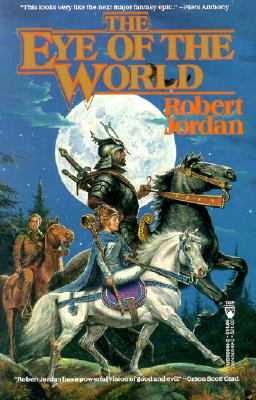 Most notable in this observation is my epic re-read of Robert Jordan's Wheel of Time series, which took me two years (the now thirteen- and almost fourteen-book series tallies in at nearly 12,000 pages). I've read them all twice... some even three times.
Most notable in this observation is my epic re-read of Robert Jordan's Wheel of Time series, which took me two years (the now thirteen- and almost fourteen-book series tallies in at nearly 12,000 pages). I've read them all twice... some even three times.
I'm facing a similar situation with George R. R. Martin's epic Song of Ice and Fire series, which now counts five books in its ranks. I've read 1-4, and am seriously contemplating starting over again from the beginning before tackling Book 5.
Lord of the Rings? Harry Potter? Redwall!? Let's not even go there.**
There are dozens of books I'd like to re-read. The Thirteenth Tale, for one, which has such a wonderfully convoluted plot that I'm dying to read it again from start to finish and look for the clues along the way. The Shadow of the Wind falls into the same category. Mark Helprin's Winter's Tale is what I generally go to as my "favorite" book, when I'm forced to pick just one, but I've read it only once. Most of Marquez' books fall in with Helprin's.****
 Ultimately, though, it's the magic that pulls me back in. It's the act of stepping back out of my world, this world of 9-to-5s and car troubles and airport security lines and Hershey's chocolate and cell phone bills and into a world where wizarding is a profession, and cars can fly, and people can carve gateways in the air, and chocolate is animated, and people speak through fireplaces and everyone knows in their heart of hearts that magic, on some level, is real.
Ultimately, though, it's the magic that pulls me back in. It's the act of stepping back out of my world, this world of 9-to-5s and car troubles and airport security lines and Hershey's chocolate and cell phone bills and into a world where wizarding is a profession, and cars can fly, and people can carve gateways in the air, and chocolate is animated, and people speak through fireplaces and everyone knows in their heart of hearts that magic, on some level, is real.
In re-entering these worlds, I feel myself slipping back into the self that I was when I first discovered these faraway lands. I can rediscover my amazement with the imagination of these now-famous authors, who once had an idea, and who grew that idea until it was the size of a world, and then put it on paper. Whether for 10 pages or 10,000, I suspect I'll continue to return to these places... even if it takes me years to do so.
---
* To be fair, I generally discount books that were required reading in middle-high school and/or college. Some of them I "read," in that I read enough topic sentences and chapter highlights to write a cohesive paper on them, and some of them I "read" in that I powered through them as quickly as possible because I had 500+ pages of reading assigned a week, and some of them I "read" in that I never actually bought the book and still wonder how I managed to pass that class. So. School-assigned reading? Not counted in the list of books I've already read.
** Ok, if we do need to go there, I'll just say this: I've lost count. I can recite the opening lines of Harry Potter by heart. I read Harry Potter in Latin. I first read Lord of the Rings when I was in elementary school, and have revisited it several times since. I've seen all the movies. When I was in middle school, my friend and I made a puppet video of Redwall. You get the picture.
*** As an interesting note, most of these titles contain elements of magical realism...
 Most notable in this observation is my epic re-read of Robert Jordan's Wheel of Time series, which took me two years (the now thirteen- and almost fourteen-book series tallies in at nearly 12,000 pages). I've read them all twice... some even three times.
Most notable in this observation is my epic re-read of Robert Jordan's Wheel of Time series, which took me two years (the now thirteen- and almost fourteen-book series tallies in at nearly 12,000 pages). I've read them all twice... some even three times.I'm facing a similar situation with George R. R. Martin's epic Song of Ice and Fire series, which now counts five books in its ranks. I've read 1-4, and am seriously contemplating starting over again from the beginning before tackling Book 5.
Lord of the Rings? Harry Potter? Redwall!? Let's not even go there.**
There are dozens of books I'd like to re-read. The Thirteenth Tale, for one, which has such a wonderfully convoluted plot that I'm dying to read it again from start to finish and look for the clues along the way. The Shadow of the Wind falls into the same category. Mark Helprin's Winter's Tale is what I generally go to as my "favorite" book, when I'm forced to pick just one, but I've read it only once. Most of Marquez' books fall in with Helprin's.****
 Ultimately, though, it's the magic that pulls me back in. It's the act of stepping back out of my world, this world of 9-to-5s and car troubles and airport security lines and Hershey's chocolate and cell phone bills and into a world where wizarding is a profession, and cars can fly, and people can carve gateways in the air, and chocolate is animated, and people speak through fireplaces and everyone knows in their heart of hearts that magic, on some level, is real.
Ultimately, though, it's the magic that pulls me back in. It's the act of stepping back out of my world, this world of 9-to-5s and car troubles and airport security lines and Hershey's chocolate and cell phone bills and into a world where wizarding is a profession, and cars can fly, and people can carve gateways in the air, and chocolate is animated, and people speak through fireplaces and everyone knows in their heart of hearts that magic, on some level, is real.In re-entering these worlds, I feel myself slipping back into the self that I was when I first discovered these faraway lands. I can rediscover my amazement with the imagination of these now-famous authors, who once had an idea, and who grew that idea until it was the size of a world, and then put it on paper. Whether for 10 pages or 10,000, I suspect I'll continue to return to these places... even if it takes me years to do so.
---
* To be fair, I generally discount books that were required reading in middle-high school and/or college. Some of them I "read," in that I read enough topic sentences and chapter highlights to write a cohesive paper on them, and some of them I "read" in that I powered through them as quickly as possible because I had 500+ pages of reading assigned a week, and some of them I "read" in that I never actually bought the book and still wonder how I managed to pass that class. So. School-assigned reading? Not counted in the list of books I've already read.
** Ok, if we do need to go there, I'll just say this: I've lost count. I can recite the opening lines of Harry Potter by heart. I read Harry Potter in Latin. I first read Lord of the Rings when I was in elementary school, and have revisited it several times since. I've seen all the movies. When I was in middle school, my friend and I made a puppet video of Redwall. You get the picture.
*** As an interesting note, most of these titles contain elements of magical realism...
Oh, I get that all the time...
08 February 2012
Ok, not all the time. But I have been emailed on multiple occasions to be told that I have chosen the wrong word for my book blog title. Since it's about books, not bugs, I clearly meant "etymology," not "entomology." Because one is the study of words, and the other the study of bugs. And here I thought I was being clever. Ah, well.
Happy Birthday, Dickens!
07 February 2012
This post is based on a column originally published in the January 24th issue of Shelf Awareness for Readers. If you don't already get this bi-weekly dose of bookish goodness in your inbox, sign up here to fix that.
Today marks Charles Dickens' 200th birthday. Happy Birthday, old fella!
Of course, it's no surprise that we are seeing a plethora of tributes to Britain's first literary superstar. New film adaptations of both Oliver Twist and Great Expectations--the latter starring Helena Bonham Carter and Ralph Fiennes--are slated to hit the big screen this year, and the BBC recently aired two new miniseries adaptations of Dickens novels. New York City's Morgan Library, home of the largest collection of Dickens manuscripts and letters in the world, has a special exhibit of Dickensiana on display through February 12.
And if you're looking to celebrate with some further reading, you won't be disappointed:
The Cheshire Cheese Cat: A Dickens of a Tail tells a delightful story of an unlikely friendship between a cat, a mouse, a raven and Charles Dickens himself--complete with writer's block. This illustrated novel is not just for kids, however; children will enjoy the adventure tale contained herein, and adults will delight in the clever allusions to Dickens characters throughout.
Becoming Dickens offers a new approach to the standard Dickens biography, telling the story of Dickens's growth into a novelist and ending early on in his career. Dickens expert Robert Douglas-Fairhurst draws on both biographical fact and a careful analysis of Dickens's own characters to provide fresh insight into how a child growing up in poverty transformed himself into one of the most famous writers in Britain.
Charles Dickens: A Life, by Jane Smiley, joins the ranks of the Penguin Lives series, and offers a more complete biography of Dickens, if less analysis and detail than might be found in Becoming Dickens. Smiley does cover all the juicy bits of Dickens' life, however, including his uncertain relationship with money, uneasy relationship with his publishers, and rumored unfaithful relationship with his wife.
For those looking for a more hands-on experience of Dickens's life, Charles Dickens: The Dickens Bicentenary 1812-2012 is just what the doctor ordered. Published by Insight Editions in association with the Charles Dickens Museum of London, this oversized book features full-size images, photographs, drawings and removable facsimiles of documents from the Dickens archives, letting readers get elbow-deep--literally--in the life and times of this well-loved author.
And readers can get really hands-on -- and feet-out -- with an upcoming title from one of my favorite quirky publishers, Shire: The Time Traveller's Guide to Dickens' London (available in the US March 20, 2012). It is, of course, exactly what it sounds like -- a travel guide of London with the intent of giving readers a glimpse into the London of Dickens' years.
What have I missed? What are you reading to celebrate Dickens? Or should I be asking if you all even like the man?
Today marks Charles Dickens' 200th birthday. Happy Birthday, old fella!
Of course, it's no surprise that we are seeing a plethora of tributes to Britain's first literary superstar. New film adaptations of both Oliver Twist and Great Expectations--the latter starring Helena Bonham Carter and Ralph Fiennes--are slated to hit the big screen this year, and the BBC recently aired two new miniseries adaptations of Dickens novels. New York City's Morgan Library, home of the largest collection of Dickens manuscripts and letters in the world, has a special exhibit of Dickensiana on display through February 12.
And if you're looking to celebrate with some further reading, you won't be disappointed:
The Cheshire Cheese Cat: A Dickens of a Tail tells a delightful story of an unlikely friendship between a cat, a mouse, a raven and Charles Dickens himself--complete with writer's block. This illustrated novel is not just for kids, however; children will enjoy the adventure tale contained herein, and adults will delight in the clever allusions to Dickens characters throughout.
Becoming Dickens offers a new approach to the standard Dickens biography, telling the story of Dickens's growth into a novelist and ending early on in his career. Dickens expert Robert Douglas-Fairhurst draws on both biographical fact and a careful analysis of Dickens's own characters to provide fresh insight into how a child growing up in poverty transformed himself into one of the most famous writers in Britain.
Charles Dickens: A Life, by Jane Smiley, joins the ranks of the Penguin Lives series, and offers a more complete biography of Dickens, if less analysis and detail than might be found in Becoming Dickens. Smiley does cover all the juicy bits of Dickens' life, however, including his uncertain relationship with money, uneasy relationship with his publishers, and rumored unfaithful relationship with his wife.
For those looking for a more hands-on experience of Dickens's life, Charles Dickens: The Dickens Bicentenary 1812-2012 is just what the doctor ordered. Published by Insight Editions in association with the Charles Dickens Museum of London, this oversized book features full-size images, photographs, drawings and removable facsimiles of documents from the Dickens archives, letting readers get elbow-deep--literally--in the life and times of this well-loved author.
And readers can get really hands-on -- and feet-out -- with an upcoming title from one of my favorite quirky publishers, Shire: The Time Traveller's Guide to Dickens' London (available in the US March 20, 2012). It is, of course, exactly what it sounds like -- a travel guide of London with the intent of giving readers a glimpse into the London of Dickens' years.
What have I missed? What are you reading to celebrate Dickens? Or should I be asking if you all even like the man?
Audiobook Review: The Wordy Shipmates, by Sarah Vowell
02 February 2012
I've long been a fan of Sarah Vowell. Her earlier works (
Assassination Vacation and The Partly Cloudy Patriot) deal closely with subjects I also adore -- namely, American history -- and so were a natural fit for me. More recently, Vowell turned her attention to Hawaii with
Unfamiliar Fishes , a subject about which I originally had little to no interest... but her book convinced me otherwise. To me, she has become the kind of skilled writer that can take a subject of any level of dryness and morph it into something witty, fun and downright delectable.
I went back recently and picked up The Wordy Shipmates on audio at my local library (though I also own the book in hardcover) in an effort to continue to get to know this author that I've always loved.* Her subject of choice this time around? None other than the Puritans, that miserly, no-fun lot that first settled our precious American shores. Well, except for the Native Americans, of course. And they weren't always no-fun, actually. And they didn't all wear black with silly white hats, either.
These are the myths that Vowell sets out to de-bunk, and she does so successfully. Puritan writing can be dry as all get-out (have you ever actually read Winthrop's extensive sermons?), but Vowell, in her usual style, treats this material with an irreverent attitude that makes it all seem... approachable, somehow. Add in the fact that she reads her own audiobooks, and Vowell's story, as well as her humor and dry, sarcastic wit, come to life in every sense of the word. Then consider a delightful cast of additional readers, including (but certainly not limited to) Peter Dinklage as the voice of Roger Williams, that outcast who ultimately founded that bizarre little state, Rhode Island.
Though this was not my favorite of Vowell's works (I find her style to be more impactful in essays than in full-length histories), I can honestly say that any writer capable of teaching us about the Puritans through a careful examination of The Brady Bunch pilgrim episode is clearly a writer worth reading. Especially when said writer manages to pull it off successfully -- which Vowell does here. The Wordy Shipmates is a delightful, if sometimes overly detailed read, and the audio version is even better. After all, who doesn't want to hear Sarah Vowell and Peter Dinklage tell us about Puritan politics? Amiright?
*The Wordy Shipmates actually came out before Unfamiliar Fishes, but I didn't read them in order.
---
Watch Sarah Vowell on Jon Stewart's The Daily Show, which is probably one of the best things ever:
---
Thoughts from other bookworms:
Bookrageous Podcast
S. Krishna's Books
Jenny's Books
Unputdownables
---
You might also like:
Unfamiliar Fishes
Assassination Vacation
The Partly Cloudy Patriot
---
The Wordy Shipmates | Sarah Vowell, nar. Sarah Vowell & Cast | Simon & Schuster Audio | 9781590514634 | $29.99 Audio CD | 6 CDs, 7 hrs | October 2008 | Buy from an independent bookstore near you
I went back recently and picked up The Wordy Shipmates on audio at my local library (though I also own the book in hardcover) in an effort to continue to get to know this author that I've always loved.* Her subject of choice this time around? None other than the Puritans, that miserly, no-fun lot that first settled our precious American shores. Well, except for the Native Americans, of course. And they weren't always no-fun, actually. And they didn't all wear black with silly white hats, either.
These are the myths that Vowell sets out to de-bunk, and she does so successfully. Puritan writing can be dry as all get-out (have you ever actually read Winthrop's extensive sermons?), but Vowell, in her usual style, treats this material with an irreverent attitude that makes it all seem... approachable, somehow. Add in the fact that she reads her own audiobooks, and Vowell's story, as well as her humor and dry, sarcastic wit, come to life in every sense of the word. Then consider a delightful cast of additional readers, including (but certainly not limited to) Peter Dinklage as the voice of Roger Williams, that outcast who ultimately founded that bizarre little state, Rhode Island.
Though this was not my favorite of Vowell's works (I find her style to be more impactful in essays than in full-length histories), I can honestly say that any writer capable of teaching us about the Puritans through a careful examination of The Brady Bunch pilgrim episode is clearly a writer worth reading. Especially when said writer manages to pull it off successfully -- which Vowell does here. The Wordy Shipmates is a delightful, if sometimes overly detailed read, and the audio version is even better. After all, who doesn't want to hear Sarah Vowell and Peter Dinklage tell us about Puritan politics? Amiright?
*The Wordy Shipmates actually came out before Unfamiliar Fishes, but I didn't read them in order.
---
Watch Sarah Vowell on Jon Stewart's The Daily Show, which is probably one of the best things ever:
| The Daily Show With Jon Stewart | Mon - Thurs 11p / 10c | |||
| Sarah Vowell | ||||
| www.thedailyshow.com | ||||
| ||||
Thoughts from other bookworms:
Bookrageous Podcast
S. Krishna's Books
Jenny's Books
Unputdownables
---
You might also like:
Unfamiliar Fishes
Assassination Vacation
The Partly Cloudy Patriot
---
The Wordy Shipmates | Sarah Vowell, nar. Sarah Vowell & Cast | Simon & Schuster Audio | 9781590514634 | $29.99 Audio CD | 6 CDs, 7 hrs | October 2008 | Buy from an independent bookstore near you
Subscribe to:
Comments (Atom)

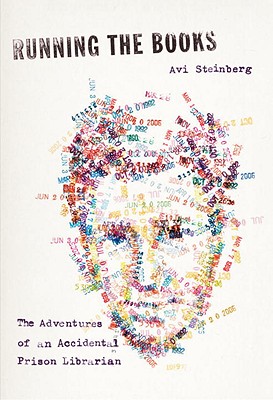


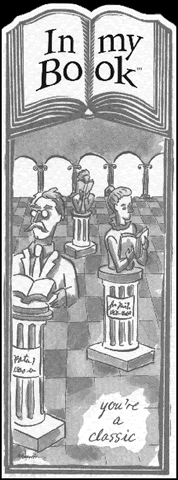

.JPG)
